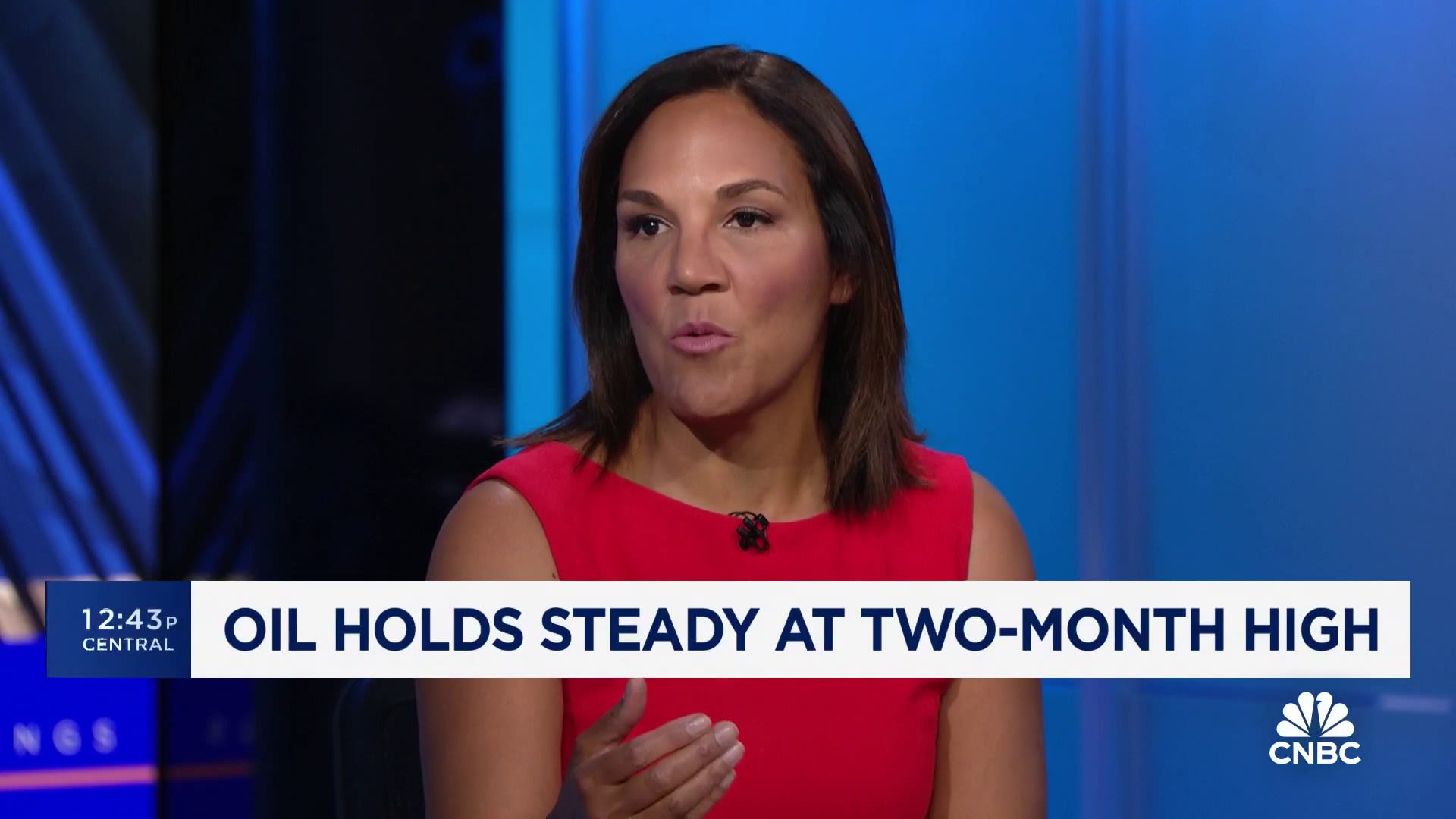
U.S. crude oil fell on Friday, but still booked a fourth straight weekly gain as falling inventories show an uptick in demand.
West Texas Intermediate hit a session high of $84.52 per barrel, the highest level since late April, before pulling back. The U.S. benchmark gained about 2% this week, while global benchmark Brent was up 0.15%.
Here are Friday’s closing energy prices:
- West Texas Intermediate August contract: $83.16 per barrel, down 72 cents, or 0.86%. Year to date, U.S. crude oil has gained 16.1%.
- Brent September contract: $86.54 per barrel, down 89 cents, or 1.02%. Year to date, the global benchmark is ahead by 12.3%.
- RBOB Gasoline August contract: $2.56 per gallon, down 3 cents, or 1.31%. Year to date, gasoline is ahead by 22.1%.
- Natural Gas August contract: $2.32 per thousand cubic feet, down 9 cents, or 3.85%. Year to date, gas is lower by 7.5%.
Oil market analysts have been forecasting a tighter market in the third quarter as summer fuel demand picks up. U.S. inventory data appeared to confirm those forecasts, with crude stocks declining by 12.2 million barrels and gasoline falling by 2.2 million barrels last week.
“With oil inventories beginning to decline as a result of solid demand and constrained supply growth, investors have started to build oil exposure again,” Giovanni Staunovo, commodity analyst at UBS, told clients in a note on Thursday.

WTI vs. Brent
UBS is forecasting that global oil demand will grow by 1.5 million barrels per day, or bpd, this year, above the long-term growth rate of 1.2 million bpd. The bank is forecasting bigger inventory declines in the coming weeks as OPEC+ keeps production cuts in place through September.
“As such, we still believe Brent will likely reach the USD $90/bbl mark this quarter,” Staunovo said. JPMorgan has also forecast that Brent will hit $90 per barrel in August or September.

